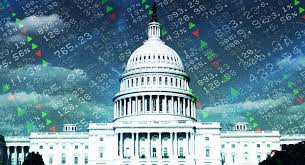Insider Trading by Members of Congress: An Enforcement Nightmare?

Several members of Congress have been implicated in potential insider trading scandals stemming from stock transactions that occurred at the beginning of COVID-19 crisis before the major stock market decline. As reported by the press, members of Congress were regularly being briefed on the implications of the spreading virus. Some of the members were making public statements discounting the significance of the virus.
Senators Kelly Loeffler (R-GA), Diane Feinstein (D-CA), Jim Inhofe (R-OK) and Richard Burr (R-NC) were publicly identified. The investigations against Senators Loeffler, Inhofe and Feinstein appear to be closed, while the criminal investigation of Richard Burr appears to be continuing. A public report cited the FBI’s seizure of Sen. Burr’s mobile phone.
Insider trading law has been the subject of significant challenges. The Supreme Court, in United States v. O’Hagan, brought some certainty to what is called the “misappropriation theory,” which imposes liability if a person trades stock based on material nonpublic information in violation of duty owed to the source of that information. In the O’Hagan case, the Court upheld the conviction of an attorney-defendant where the attorney-defendant engaged in stock transactions based on information he obtained while representing an acquiring company in an unannounced takeover of a target company. Trading on the confidential information is only prohibited when such activity violates a duty owed by the trader to another person or entity.
Insider trading involving members of Congress implicates a law enacted in 2012, Stop Trading on Congressional Knowledge Act (Stock Act), which prohibits members of Congress from trading on material nonpublic information learned when acting in accordance with their duties. The Stock Act pins the prohibition to Members’ duty of trust to Congress and the American people. So, if a Member trades stock based on material, nonpublic information learned during the course of his or her duties, they could be liable for insider trading.

Insider trading cases are not easy – while proving the stock trades themselves may be relatively straightforward, prosecutors face uphill challenges in proving that a Member of Congress acted with the requisite intent and did so based on material nonpublic information.
Nonpublic Information: To determine if insider trading occurred, prosecutors will have to know exactly what information was communicated during the confidential briefings. Sen. Burr, for example, has claimed that he traded his stock based on public information and provided detailed sources for such public reports (e.g. CNBC). If there was information that was not known to the public disclosed during the briefing, and Sen. Burr traded because of that information, then prosecutors may be able to make a case of insider trading. Such a showing may be very difficult given the availability of information from various public sources, including government websites and news sites repeating such information. If the information disclosed in the briefing wqas classified, such information, by definition, would not be public. Again, prosecutors would have to show that Sen. Burr or other Members traded because of the information.

Material: Even assuming that the information was not public, prosecutors have to establish that the information was material, or important to a reasonable investor in deciding whether to buy or sell the stock. If the information related to general risks and not to a specific company, the impact of the information is less likely to constitute material information. For example, if the briefing included information about the healthcare industry and Sen. Burr or another senator traded his/her healthcare company stock based on this information, that could constitute insider trading.
While the surrounding circumstances may not fall into the criminal category, the optics of the members stock trade are definitely not very attractive. The SEC could pursue civil charges and the Senate and House Ethics Committees could investigate the Members’ trading activities.
















Mr. Volkov,
Jim Inhofe is a Republican Senator from Oklahoma, not Idaho. My Idaho Congressional leaders are all held in high regard in Washington, DC, and I hope they remain as such through this nightmare.